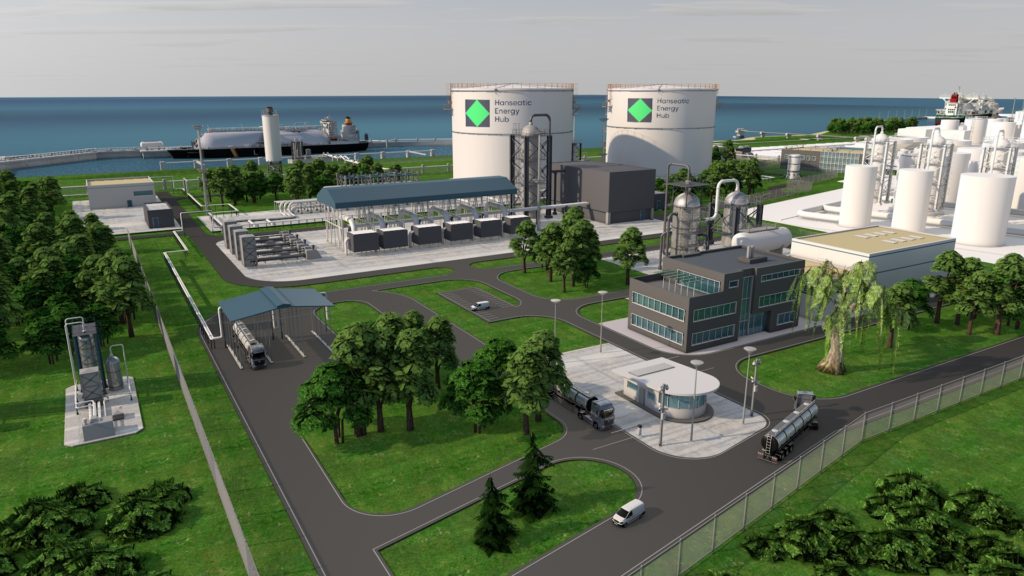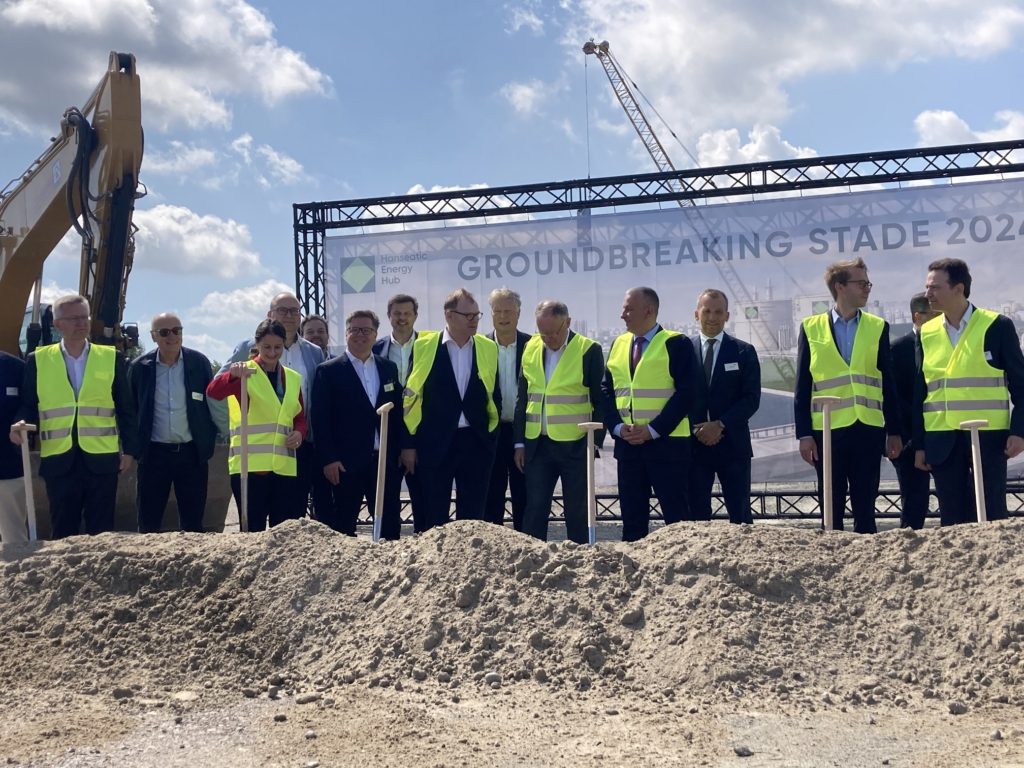Published: 4. 7. 2024
The Czech Republic continues to strengthen its energy self-sufficiency, the basis of which is to reduce its energy dependence on Russia. Construction of Germany’s first onshore LNG terminal for the processing and further transport of natural gas was inaugurated today near Hamburg at the mouth of the Elbe River in the North Sea. Under the Hanseatic Energy Hub consortium, the terminal will be operational here as early as 2027. In cooperation with the government, last year CEZ Group contracted a long-term annual capacity of 2 billionm3 at Stade.
“The situation on the gas market in Europe is gradually stabilising, but we must be prepared for possible further fluctuations. We are delighted that thanks to the cooperation of the Czech and German governments and the helpfulness of our partners from Hanseatic Energy Hub, we can also be present today at the start of the construction of the first onshore terminal in Germany in Stade. One of the key elements for the transition to a zero-emission energy sector in the coming years will be gas-fired power plants in combination with renewables, requiring a stable supply of fuel, which LNG terminals can provide. Thanks to the capacity in Stade, the Czech Republic will secure long-term LNG supplies and at the same time the possibility to obtain emission-free gases after the conversion of the terminal.” said Pavel Cyrani, Vice-Chairman of the ČEZ Board of Directors.


Full press release here
